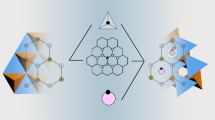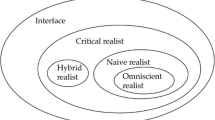Abstract
Evolution-in-materio uses evolutionary algorithms to exploit properties of materials to solve computational problems without requiring a detailed understanding of such properties. We show that using a purpose-built hardware platform called Mecobo, it is possible to solve computational problems by evolving voltages and signals applied to an electrode array covered with a carbon nanotube–polymer composite. We demonstrate for the first time that this methodology can be applied to function optimization and also to the tone discriminator problem (TDP). For function optimization, we evaluate the approach on a suite of optimization benchmarks and obtain results that in some cases come very close to the global optimum or are comparable with those obtained using well-known software-based evolutionary approach. We also obtain good results in comparison with prior work on the tone discriminator problem. In the case of the TDP we also investigated the relative merits of different mixtures of materials and organizations of electrode array.








Similar content being viewed by others
Notes
Digital chips are designed to emulate, as far as possible, a device that operates using Boolean algebra.
Mark K. Massey and Michael C. Petty prepared the materials used as substrates and the electrode masks for our experiments.
In both cases of experimental material and CGP, offspring replaced parents if their fitness was greater than or equal to the parent.
Based on average results over 30 independent runs, and 500,000 evaluations for each run.
References
Banzhaf W, Beslon G, Christensen S, Foster J, Képès F, Lefort V, Miller JF, Radman M, Ramsden J (2006) Guidelines: from artificial evolution to computational evolution: a research agenda. Nat Rev Genetics 7:729–735
Bird J, Layzell P (2002) An evolved radio and its implications for modelling the evolution of novel sensors. In: Proceedings of congress on evolutionary computation, pp 1836–1841
Broersma H, Gomez F, Miller JF, Petty M, Tufte G (2012) NASCENCE Project: nanoscale engineering for novel computation using evolution. Int J Unconv Comput 8(4):313–317
Clegg KD, Miller JF, Massey MK, Petty MC (2014) Travelling salesman problem solved ‘in materio’ by evolved carbon nanotube device. In: Parallel problem solving from nature—PPSN XIII—13th International Conference, Proceedings, LNCS, vol 8672, pp 692–701. Springer
Harding S (2006) Evolution in materio. Ph.D. thesis, University of York
Harding S, Miller JF (2004) Evolution in materio: a tone discriminator in liquid crystal. In: In Proceedings of the congress on evolutionary computation 2004 (CEC’2004), vol 2, pp 1800–1807
Harding S, Miller JF (2005) Evolution in materio: a real time robot controller in liquid crystal. In: Proceedings of NASA/DoD conference on evolvable hardware, pp 229–238
Harding S, Miller JF (2009) Evolution in materio. In: Meyers RA (ed) Encyclopedia of complexity and systems science. Springer, Berlin, pp 3220–3233
Harding SL, Miller JF (2007) Evolution in materio: evolving logic gates in liquid crystal. Int J Unconv Comput 3(4):243–257
Harding SL, Miller JF, Rietman EA (2008) Evolution in materio: exploiting the physics of materials for computation. Int J Unconv Comput 4(2):155–194
Hollander M, Wolfe D (1973) Nonparametric statistical methods. Wiley, New York
Kirschner M, Gerhart J (1998) Evolvability. Proc Natl Acad Sci (USA) 95:8420–8427
Layzell P (2001) Hardware evolution: on the nature of artificially evolved electronic circuits. Ph.D. thesis, School of Cognitive and Computing Sciences, University of Sussex, UK
Lykkebø OR, Harding S, Tufte G, Miller JF (2014) Mecobo: a hardware and software platform for in materio evolution. In: Ibarra OH, Kari L, Kopecki S (eds) Unconventional computation and natural computation, LNCS. Springer International Publishing, Switzerland, pp 267–279
Miller JF (ed) (2011) Cartesian genetic programming. Springer, Berlin
Miller JF, Downing K (2002) Evolution in materio: looking beyond the silicon box. In: NASA/DOD conference on evolvable hardware, pp 167–176. IEEE Comp. Soc. Press
Miller JF, Harding SL, Tufte G (2014) Evolution-in-materio: evolving computation in materials. Evolut Intell 7:49–67
Miller JF, Mohid M (2013) Function optimization using cartesian genetic programming. In: GECCO (Companion), pp 147–148
Mohid M, Miller JF, Harding SL, Tufte G, Lykkebø OR, Massey MK, Petty MC (2014) Evolution-in-materio: solving machine learning classification problems using materials. In: Parallel problem solving from nature—PPSN XIII–13th International Conference, Proceedings, LNCS, vol 8672, pp 721–730. Springer
Thompson A (1998) Hardware evolution—automatic design of electronic circuits in reconfigurable hardware by artificial evolution. Springer, Berlin
Thompson A, Layzell P (1999) Analysis of unconventional evolved electronics. Commun ACM 42(4):71–79
Vargha A, Delaney HD (2000) A critique and improvement of the cl common language effect size statistics of mcgraw and wong. J Educ Behav Stat 25(2):101–132
Vesterstrom J, Thomsen R (2004) A comparative study of differential evolution, particle swarm optimization, and evolutionary algorithms on numerical benchmark problems. In: Congress on evolutionary computation, 2004. CEC2004, vol 2, pp 1980–1987
Yao X, Liu Y (1996) Fast evolutionary programming. In: Fogel LJ et al (eds) Proceedings of the 5th annual conference on evolutionary programming, pp 451–460. MIT Press
Acknowledgments
The research leading to these results has received funding from the European Community’s Seventh Framework Programme (FP7/2007–2013) under Grant Agreement Number 317662.
Author information
Authors and Affiliations
Corresponding author
Ethics declarations
Conflict of interest
The authors declare that there is no conflict of interests regarding the publication of this paper.
Additional information
Communicated by D. Neagu.
Rights and permissions
About this article
Cite this article
Mohid, M., Miller, J.F., Harding, S.L. et al. Evolution-in-materio: solving computational problems using carbon nanotube–polymer composites. Soft Comput 20, 3007–3022 (2016). https://doi.org/10.1007/s00500-015-1928-6
Published:
Issue Date:
DOI: https://doi.org/10.1007/s00500-015-1928-6




